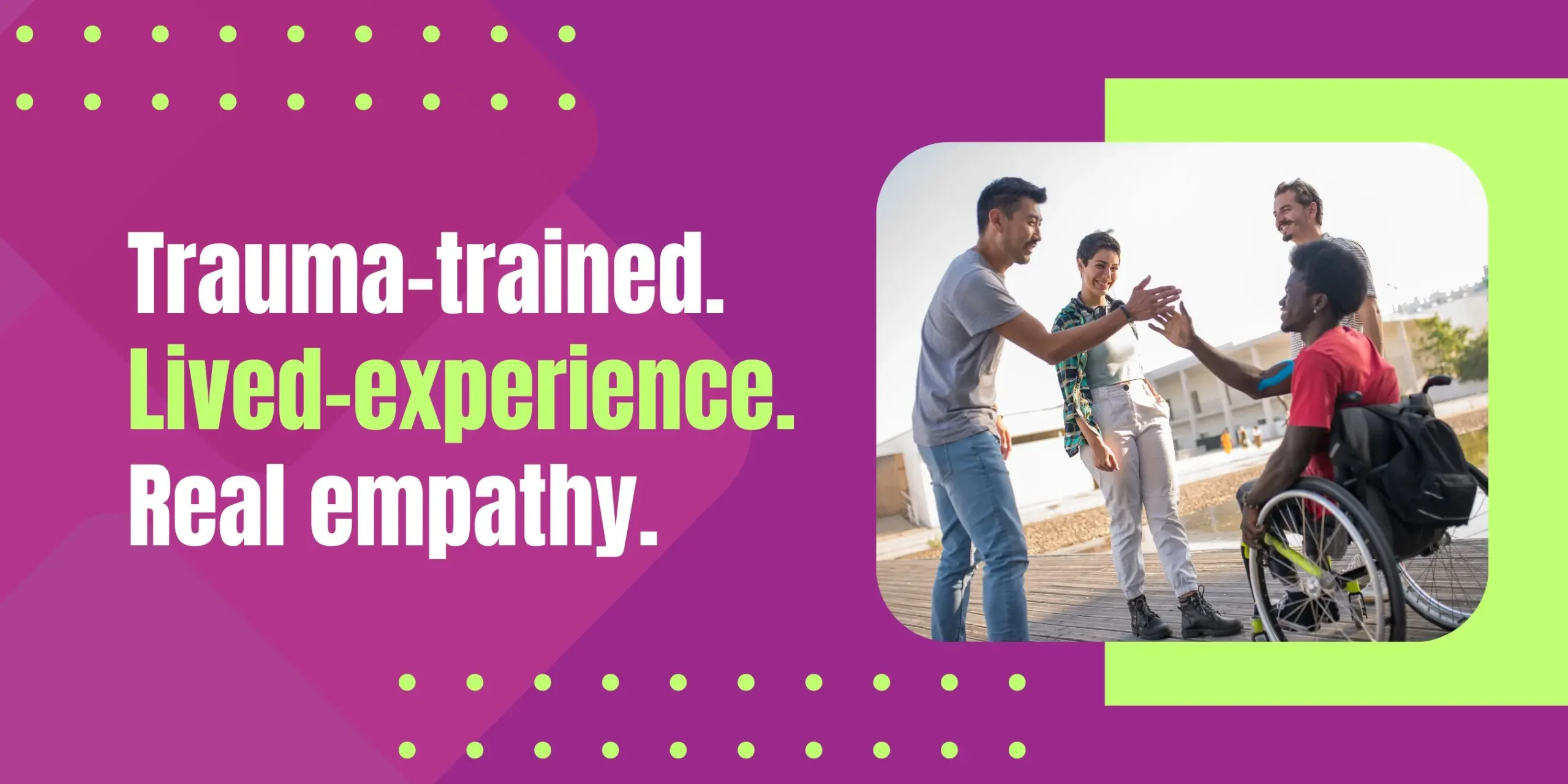If one is a victim of trauma, recovery doesn’t follow a straight path. It’s not merely a matter of counselling or medication, but establishing trust, confidence, and a sense of agency too. That’s where a trauma-informed psychosocial recovery coach comes into the scene as an essential support system. Such coaches accompany individuals on the recovery journey, reinstating their autonomy and emotional well-being, with care for what they have endured.
But not all coaches are a good fit. Having the appropriate one can be life-changing, especially for someone with a psychosocial disability or navigating the NDIS. But what do you seek in a coach who understands trauma, honors your voice, and builds support around your unique needs?
In this article, learn what a good psychosocial recovery coach is, what it will be like, and how the proper coach can result in long-term strength and development.
What is a Psychosocial Recovery Coach?
A psychosocial recovery coach is an educated and trained expert who assists individuals with psychosocial disability or mental illness to attain positive changes during the recovery stage. The NDIS introduced this role to assist individuals in having a better understanding of their support possibilities, developing better relationships, and enhancing daily living and coping skills.
Whereas a support coordinator will generally be system and service-focused, a recovery coach integrates lived or acquired experience of mental illness with coaching skills. What that means is they don’t just assist you to navigate the NDIS, they assist you to rebuild your life on your terms.
Why Trauma-Informed Support Matters
Trauma has the potential to impact a person deeply in the long term. For most individuals with psychosocial disability, there has been trauma in their history. Whether it has been in childhood, in the context of relationships, in the context of medical procedures, or because of systematic disadvantage, it impacts how they trust, how they cope with stress, or interact with services.
This is why it’s such a critical job to select a trauma-informed recovery coach, an individual who understands the impact of trauma on the nervous system, behavior, communication, and safety.
A trauma-informed coach operates with empathy, avoids re-traumatising, and assists in the creation of emotional safety in each encounter. They don’t push or command but rather team, empower, and guide gently.
Top Qualities to Look for in a Trauma-Informed Psychosocial Recovery Coach
If you’re thinking about hiring a recovery coach, look for the following best qualities.
1. Lived or Learned Mental Health Experience
The most effective coaches have either lived through recovery from mental illness themselves or have worked with people in recovery over time. This provides them with insight, empathy, and a non-judgmental attitude that can’t be learned from a book.
Ask them about their background and how they translate that into their coaching approach. A good coach will be candid and reflective without diverting the attention away from your requirements.
2. Trauma-Informed Practice Training
A trauma-informed coach is not only courteous, but they are trained. Hire someone with a formal education or a wealth of experience in trauma-informed care. That can include:
- Emotional triggers and how to manage them
- The worth of reliability and consistency in recovery
- How trauma impacts memory, behaviour, and learning
- Creating secure spaces where people can develop
They should be able to talk about these openly and how they integrate them into their coaching practice.
3. Effective Listening and Communication Skills
Recovery coaching is collaboration, not prescription. Your coach will listen attentively, restate what they have heard, and always work from your objectives, not theirs.
They’ll listen carefully, ask thoughtful, respectful questions, and remain patient in those moments when things become stuck or difficult. You’ll never feel rushed, judged, or pushed out of your comfort zone.
4. Clarity around the NDIS and Psychosocial Supports
Part of the major responsibility of a psychosocial recovery coach is to enable you to get the most out of your NDIS plan. That means helping them to understand:
- How to connect you to the most appropriate support services
- How to interpret your goals and turn them into action
- How to work with funding within your plan
- How to negotiate for what you require with planners or providers
A good coach won’t just take you through the NDIS system – they’ll teach you how to do it yourself, with your confidence increasing every step of the way.
5. Alignment with Recovery Principles
Recovery is a highly individual process. It is not a matter of becoming “fixed” but rather of learning to live in a fulfilling way, with self-direction and hope. A trauma-informed psychosocial recovery coach need to always be operating in this recovery-oriented model, with the priorities of:
- Empowering choice and autonomy
- Accessing your own strengths
- Building hope and possibility
- Honoring your own pace and preferences
They can make incremental suggestions, but the choice is up to you. The coach’s role is to walk with you, not in front of you.
 How a Recovery Coach Can Assist You
How a Recovery Coach Can Assist You
An appropriate coach can yield more than better NDIS access. Here is how a psychosocial recovery coach can help you:
- Assisting you in setting and achieving worthwhile goals
- Enabling emotional regulation strategies
- Connecting you with community support
- Working around challenges with supporters or providers
- Building daily routines to enhance well-being
- Enhancing communication with family or carers
- Promoting skill-building and self-confidence in public
The support is about you and varies as your goals and needs do.
Selecting the Right Coach for You
A good rapport is essential. As you are interviewing a possible coach, consider:
- Do I feel valued and understood?
- Is this individual empathetic and patient?
- Can I envision myself building trust with them over time?
- Do they show an awareness of trauma and mental health?
- Are they open to changing their approach if necessary?
If it doesn’t quite ring true, it’s alright to continue searching. Your ideal coach will be someone you feel at ease with, who recognises and supports your small victories and assists you in developing resilience when times get tough.
Conclusion
Finding a trauma-informed psychosocial recovery coach can be the most empowering decision you ever make on the path to recovery. It’s not about fixing what’s broken but honoring where you’ve been and where you’re going.
A good coach provides you with safety, support, and guidance, leading you into clarity and empowerment, step by step. When you’re newly commencing the NDIS or seeking more out of your present plan, approach slowly, query appropriately, and trust your instinct.
And when the moment is appropriate, ADCS stands ready to assist you with kindness, experience, and care that looks at the entire person, not merely the forms. Connect with ADCS today!


 How a Recovery Coach Can Assist You
How a Recovery Coach Can Assist You





